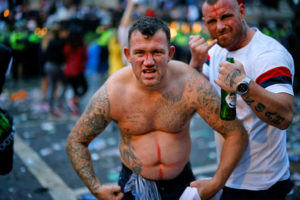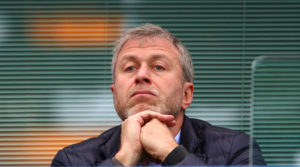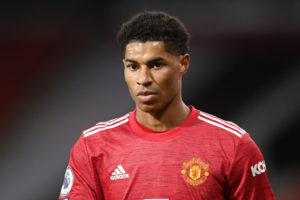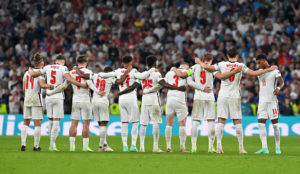When he played football, Gary Neville was often compared to a rat. He was never beautiful, not in his callow face, and certainly not on the pitch; no one made that claim for him. In 600 appearances for Manchester United and Sir Alex Ferguson, the right-back won everything, while demonstrating every rat-like quality there is along the way.
Neville was cunning, compact, obscurely dirty, always twitchily bothered by something, and vicious in small ways. And he was, like rats everywhere, derided. Neville, said Carlos Tevez, was a “sock-sucker”; less an enforcer of his manager’s wishes than a dogsbody, not a loyalist but a sycophant. Nobody, chuckled Jamie Carragher, wanted to grow up and be Gary Neville. His fellow players mocked him for travelling to away games with his own bowl, spoon, and box of Weetabix. The cereal, he touchingly remembered, “became my thing”.
A lack of imagination, doggedness, and blind loyalty are not bad qualities for a footballer to have. Neville might not “possess the natural talent of some of his team mates”, said his manager, but that just made him work harder. In an industry which rewards over-conditioning and astronaut dullness, Neville was both. In his playing days you could rely on Gary to be at home tucked up in bed every Friday night by 9pm. He retired widely regarded as the greatest English right-back of his generation, and widely despised outside of red Manchester.
Now the rat has found a sinking ship. In January Neville joined the Labour Party. By the turn of the year, he had already clashed with Edwina Currie on Good Morning Britain over Universal Credit, said many angry things about Brexit, and tweeted scathingly about Boris Johnson — essential requisites for a political career in England.
A few weeks ago Neville joined Keir Starmer for a dinner at Manchester’s fancy Vermillion restaurant. More than 700 people attended, which was the largest turnout for a Labour fundraiser in over a decade. He is being touted as a future MP, or Manchester Mayor. The prospect is being taken seriously in the city, where Neville owns a football club, businesses and a university. A Labour source told the press: “He’ll be a fantastic high-profile spokesperson for the party.”
They are probably right. To understand why, you have to consider the public transformation he enjoyed in the last decade. After he retired, Neville joined Sky Sports as a pundit. Football punditry was a lazy towel-slapping, jowly blokes club back then, where the standard of analysis barely hovered above that offered by the drunkest bar-propper in your local.
Neville smashed this decadent pundit aristocracy with Bolshevik ferocity. What made him so irritating to fans as a player — his spiky intensity — made him unmissable to them on television. Unlike so many other commentators, Neville treated punditry with the same control freakishness that fed his personal Weetabix approach to the game. When he signed for Sky he asked for a full-size replica of the Sky pundit’s jumbo touchscreen to be installed in his house — so he could practise during the close season. The only thing Andy Gray (Neville’s Sky predecessor) did in the close season was play golf. In a world where heard-it-a-million-times-before banter and indestructible clichés reigned, Neville was a revolution. He never did filler. Keira Knightley claimed Neville was her only reason for owning a television. “He is just amazing, absolutely fucking amazing!”
Television — the lights and mics, the producers and sets — acted on Neville like an addictive, galvanic drug. Its effects could be seen on a daily basis on Sky Sports. Four hours every Monday night, Saturday evenings, Sunday afternoons… He was, simply, wired. Clothed in sensible Dad-wear, Neville starts most shows controlled, armed with facts and statistics. He likes homely domestic metaphors — strikers compared to “burglars in the house” et cetera. He tells viewers that he is speaking in a “to be honest with you” capacity. We believe him.
But it is only when things happen in the day’s game that he really hits his stride. And it is only when he gets angry about those things that he sprints. A violence creeps into his language: decisions are devastating, performances are shameful, substitutions are nonsensical, club boardrooms need cleansing, Dele Alli needs to sort himself out. The more he disagrees with other pundits the higher his voice, nasal at the best of times, climbs; the delivery is rat-tat-tat-tat, a squeaky machine gun hitting bullseye after bullseye. And then, when he is properly properly disgusted — as he was when six English clubs tried to join a breakaway European super league — he speaks less as Gary Neville than as a psychotic voodoo conduit for millions of properly properly disgusted fans.
So we have the pleasure of watching an immaculate machine threshing away. He had become something rare: a performer who defines a medium. But what makes Neville on Sky such perfect television is how utterly meaningless it all is. The stakes — this is football after all — are in the basement low, but Gary analyses the spectacle with the most unhinged Cromwellian zealotry.
But it’s not meaningless for Gary. He told Beth Rigby this year that he used to think sport should be above politics, but now he has changed his mind. Football — and this is the new standard view — is not entertainment, but a way of twisting social dials, of changing things for the better. To those, like Neville and other “activist super players” such as Marcus Rashford, this narrative makes sense. Football changed their lives. Why can’t it change others’?
Sadly, football has a well-defined role in England. It won’t be altered by good-intentions, or cynical PR campaigns, or cynical PR campaigns with good-intentions. We are a nation of voyeurs and fantasists, fond of gladiator entertainments. Most of us don’t play football, but we enjoy watching heavily-drilled millionaire athletes do it for us. Corporate billions have raised the standard of the game to a fluid, balletic excellence that makes it the ultimate artificial excitement. In the fattest country in Europe, this makes football not another branch of politics, but a hysterical distraction from the drabness of English life.
That is the context of Gary Neville, future politician. The divisive player who became a unifying pundit, deluded about the sport he watches, and the country he lives in. He only became interested in politics after Brexit. Neville had exactly the right age profile (middle-ish), employment (media), and number of Twitter followers (millions), to be freaked out by 2016. He started saying things like “silence isn’t good enough anymore”. Retweets, as in so many cases, made him think he was right.
When Neville talks about politics he sounds the way he does when he talks about football. The same homespun metaphors, the same insistence on leadership, teams, passion, honesty, and integrity. The government “socially engineers our minds”; Boris Johnson is a “bluffer” who he’d love to tear “to shreds” at the dispatch box. This is an understanding of politics that never rises above “my Dad could beat up your Dad” — though maybe that’s all politics really is. There are faint stirrings of a Left-nationalism, like Keir Starmer’s, in what Neville says, but this is a weirdly authoritarian strain.
Neville wants people to work as hard as he does, enjoy champagne if they can afford it, send the Tories out onto the training field to pick up the cones and bibs, and for every political leader to resemble Sir Alex Ferguson, arguably the most tyrannical manager English football has ever seen. He has never done an interview that touched on politics without mentioning how much he “hates division”. As if democracy can be conducted without disagreement. As if he thinks society can be as thoroughly organised as 11 men on a pitch were by Sir Alex. (“My politics is driven by what I saw in the changing room,” he says.) These do not feel like deeply thought through views. They are extrapolations from an unusual life, repackaged, simplistically, as vulgar common sense. For this reason, they may prove to be enormously appealing to the British public. Politics, like football punditry, rewards generalisation.
He remains coy about his political future. “I’m not saying never,” he told Nick Robinson in January. But some outlines of success are there. There is the shadow of his enterprises across Manchester that give him a honed-on-the-grindstone businessman’s appeal. There is the broadcasting advantage that his Lancashire tones, with the appearance of frank outspokenness they generate on radio and television, endow him with. There is the tuck-in-your-shirt simplicity of his message — work hard and be fair — that a potted plant could understand. Neville could act as a bridge between the public sector upper middle class that runs Labour, and the working classes the party no longer understands.
Neville has already demonstrated that he can fundraise. And unlike Keir Starmer, who’s pinkly filigreed cheeks and blubbery mien usually make him look tearfully hungover whenever he’s on television, Neville can communicate plausibly. If he can sell Starmer with the same calculated mania he sells Monday night games between Burnley and Aston Villa, Neville will be an asset.
But if Gary Neville is the answer for Labour, what exactly is the question? One asked from desperation. Neville is admired, competent, and successful — none of this applies to Starmer’s party. Up against a government that has one lonely area of competence (sending anti-tank rocket launchers to Ukraine) and nothing else going for it, they are about level in the polls. Against a shattered and despised Johnson, shouldn’t they be ten points clear?
Labour is shattered too. Millions of pounds a year in legal bills from anti-Semitism lawsuits are crippling the party. It continues to fry in the fat of its own confusion over women’s rights. And the sense that it is aloofly ruled by moral invigilators, high on sanctimony and traumatised by marginalia, hasn’t gone away. Like poor Dele Alli, Labour still needs to sort itself out.
It’s a bigger redemption job than a celebrity, however respected, can manage. That’s no disgrace. From adulthood Neville only knew trophies in football and television. He had to struggle, but in gilded conditions, surrounded by generational talents — Ferguson, Giggs, Ronaldo. Labour is neither gilded, nor laden with talent. It is not primed for power.
Flash forward a year. Prospective MP Gary Neville is doing the rounds on the breakfast shows, hating every minute of it. The sugar rush of novelty is over. This game is different to the one he played on the pitch. There he could be as rattish as he wanted; politics turns out to be more difficult than tweeting out opinions. Faced with ambush-happy journalists, not pundit colleagues, he has to field harder queries than: was Paul Scholes better than Frank Lampard? Questions like: “Can a woman have a penis?”
Labour can’t answer that question. Until it does, you suspect they will need more than Gary Neville to return to power.
Disclaimer
Some of the posts we share are controversial and we do not necessarily agree with them in the whole extend. Sometimes we agree with the content or part of it but we do not agree with the narration or language. Nevertheless we find them somehow interesting, valuable and/or informative or we share them, because we strongly believe in freedom of speech, free press and journalism. We strongly encourage you to have a critical approach to all the content, do your own research and analysis to build your own opinion.
We would be glad to have your feedback.
Source: UnHerd Read the original article here: https://unherd.com





